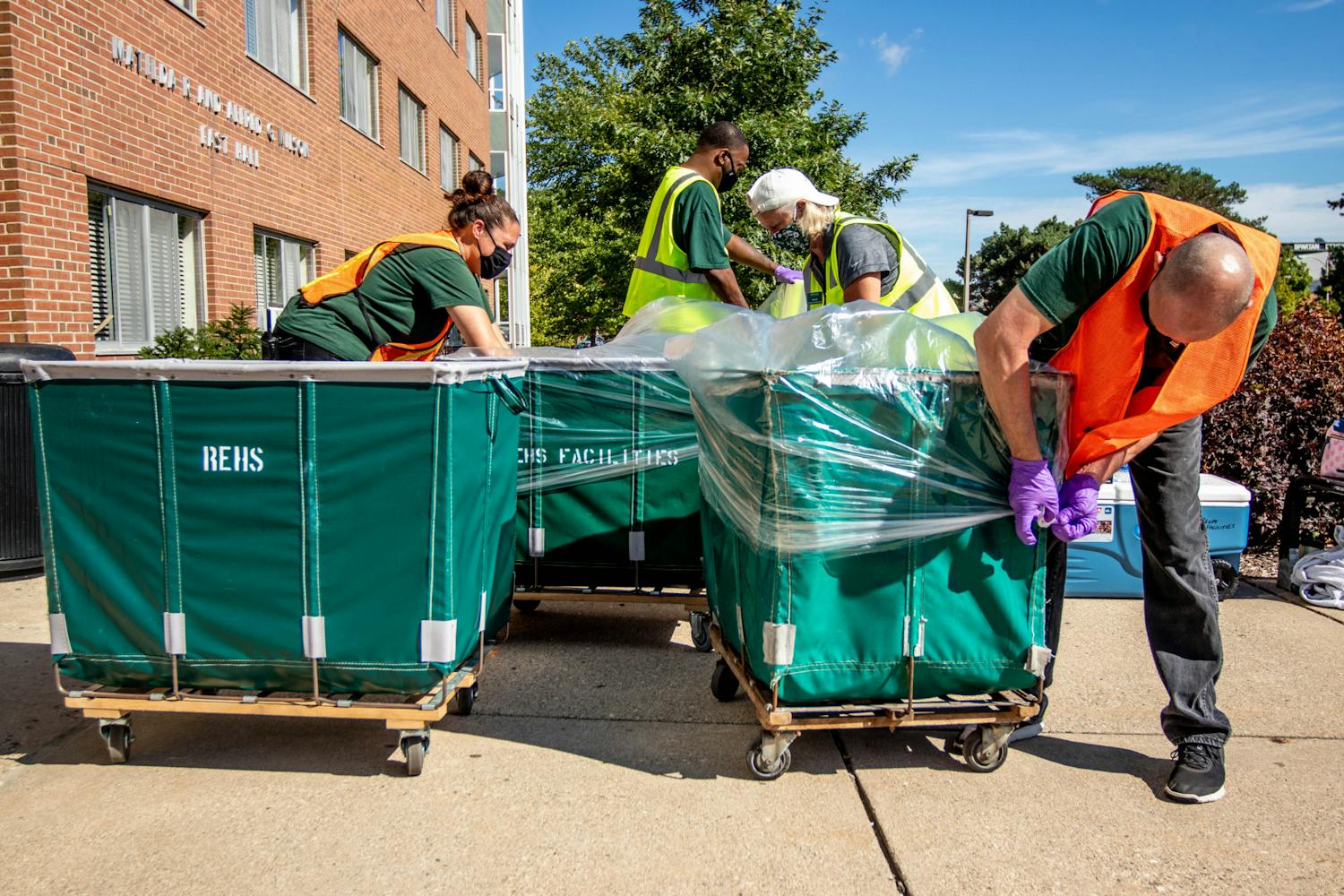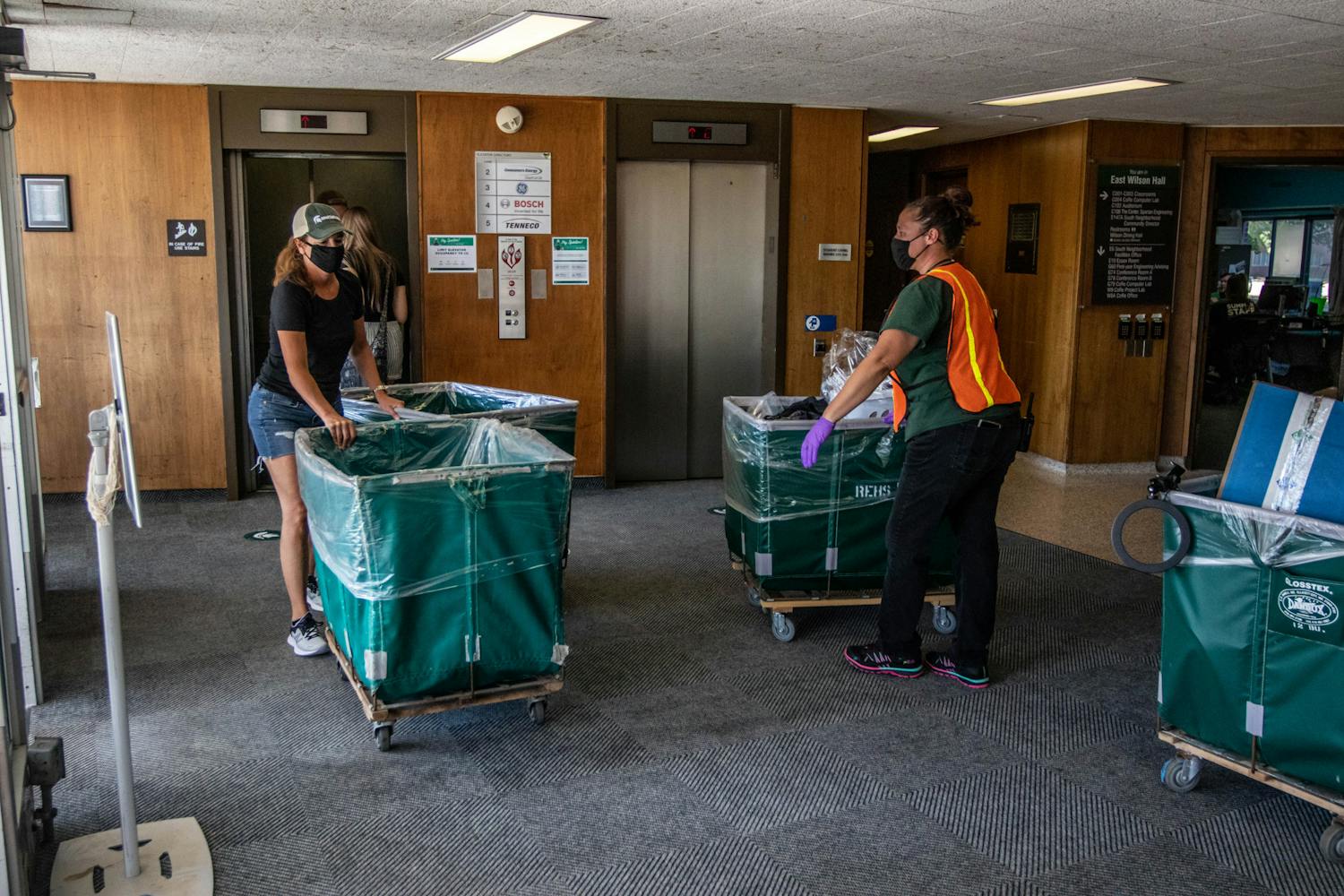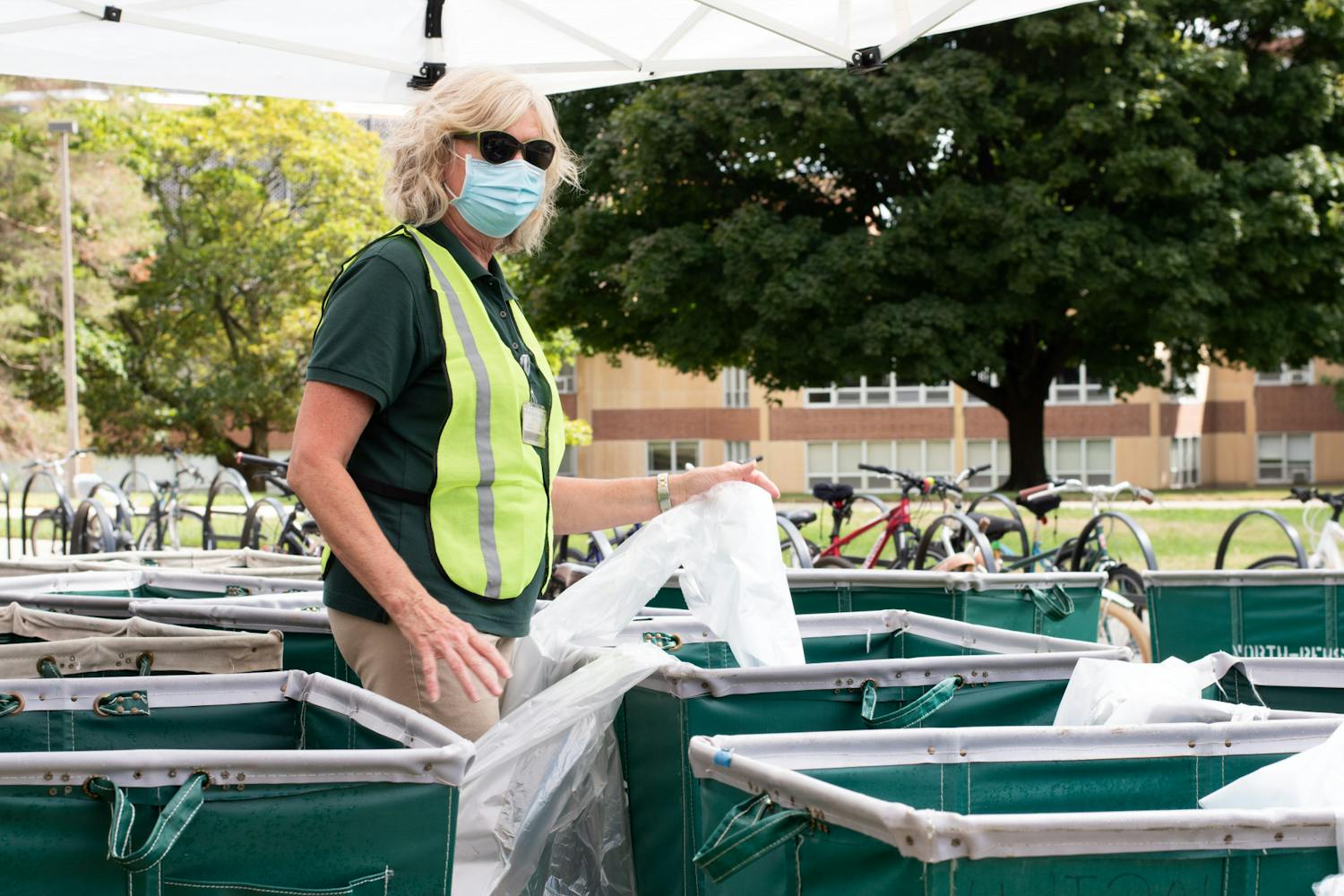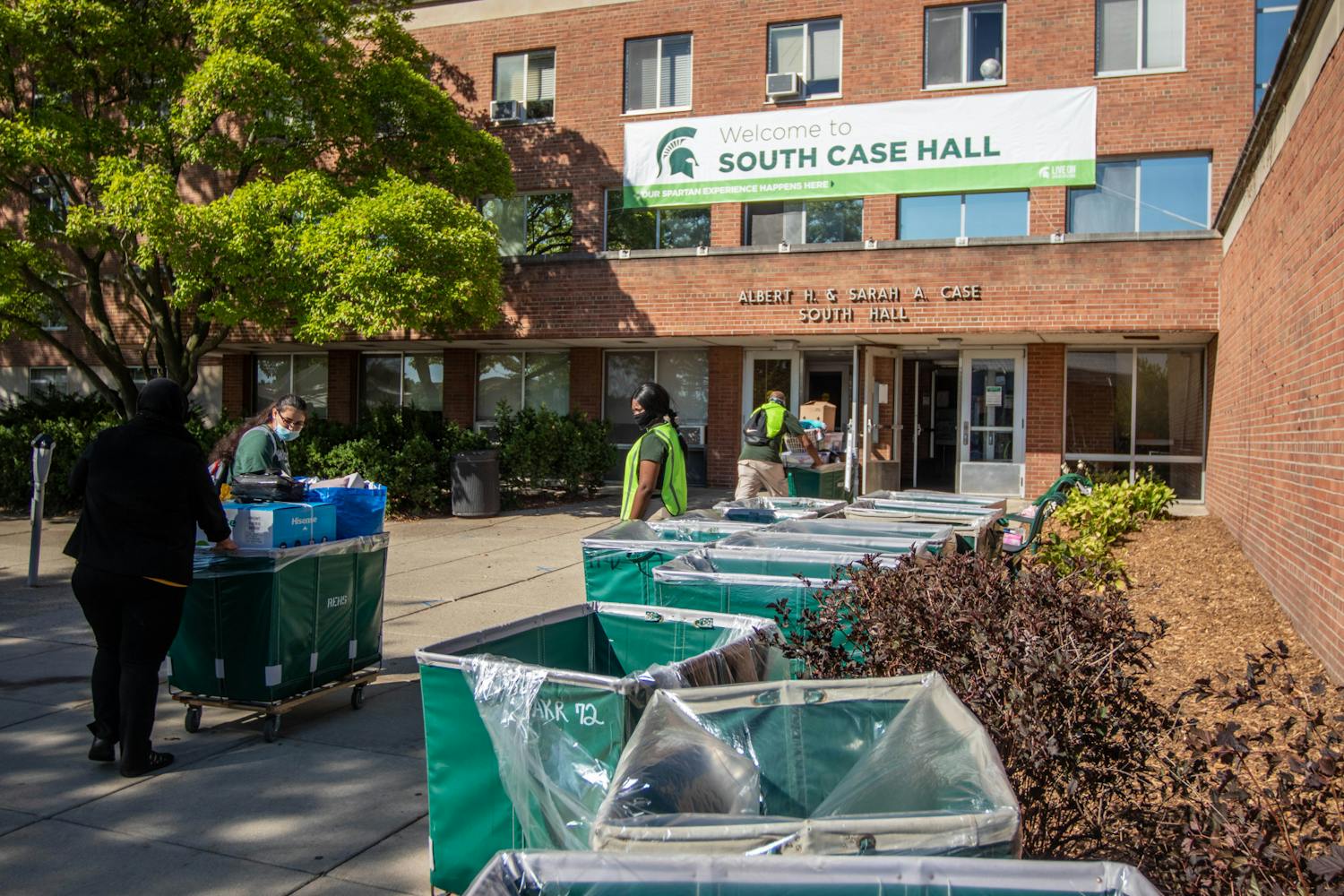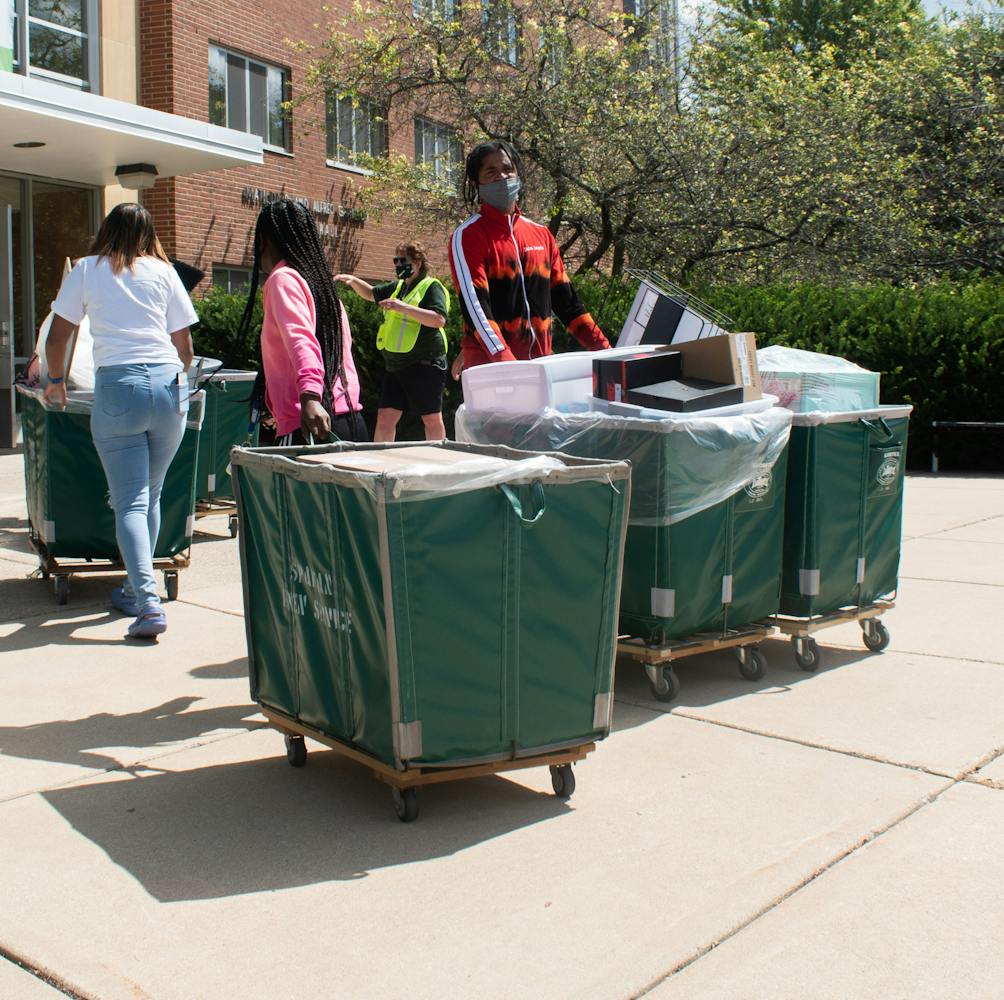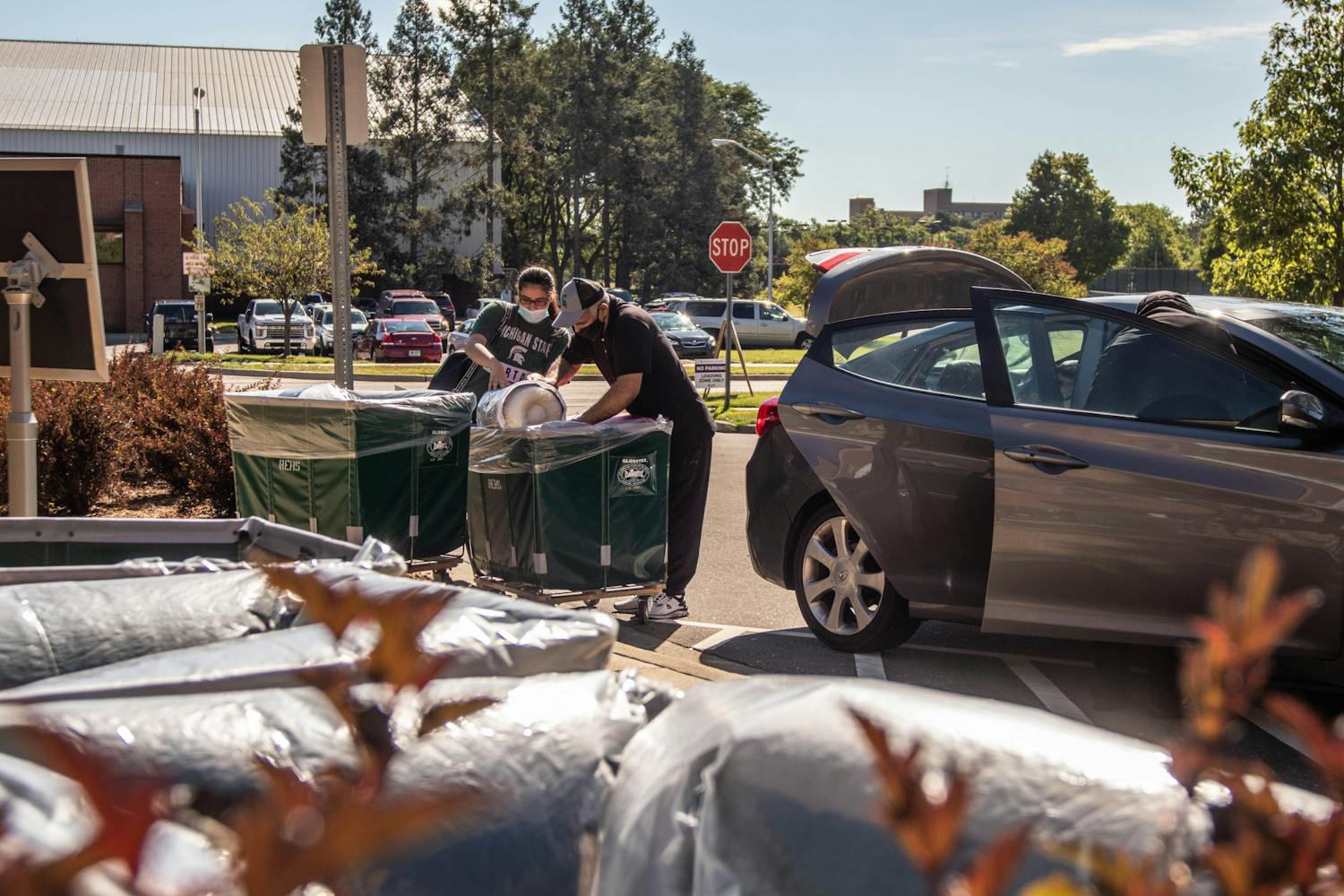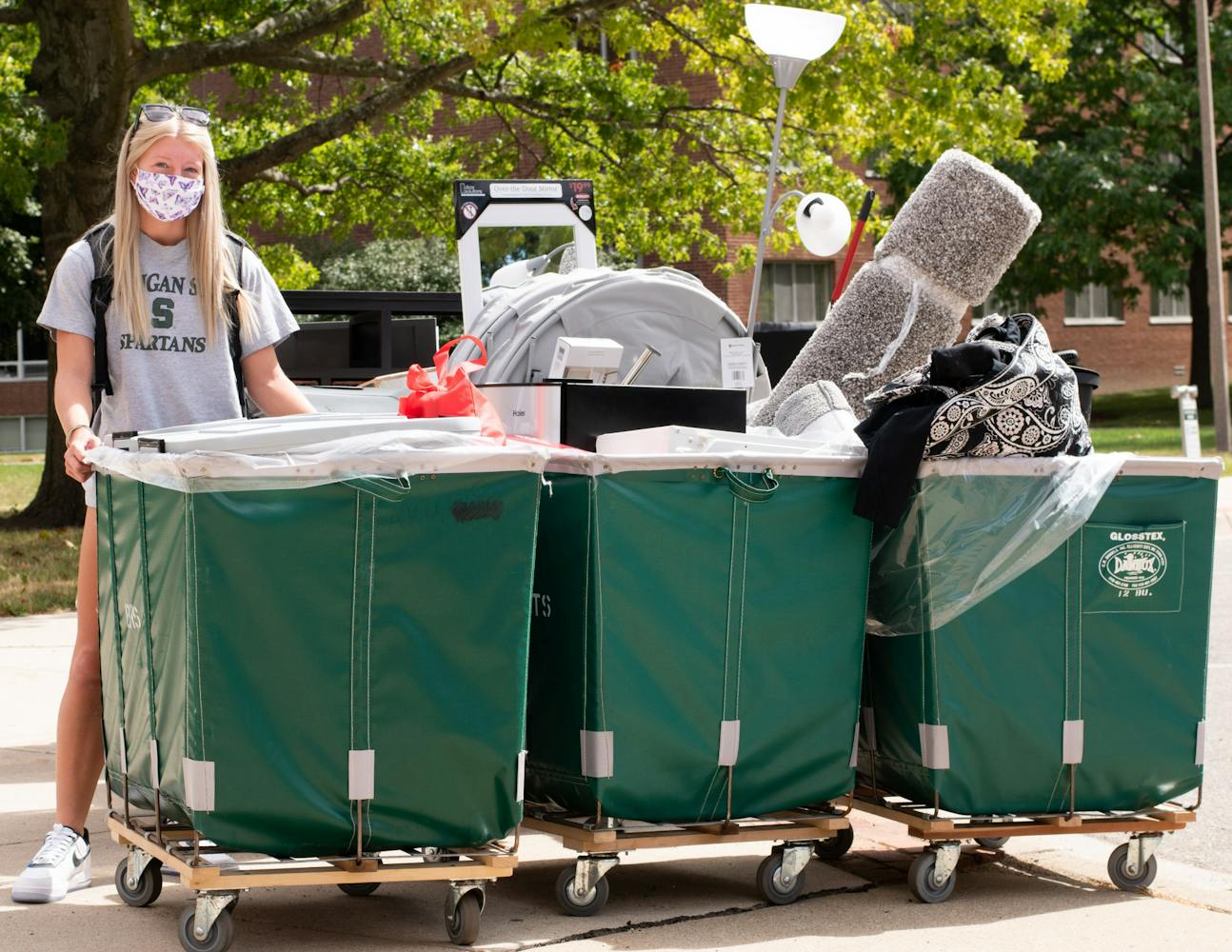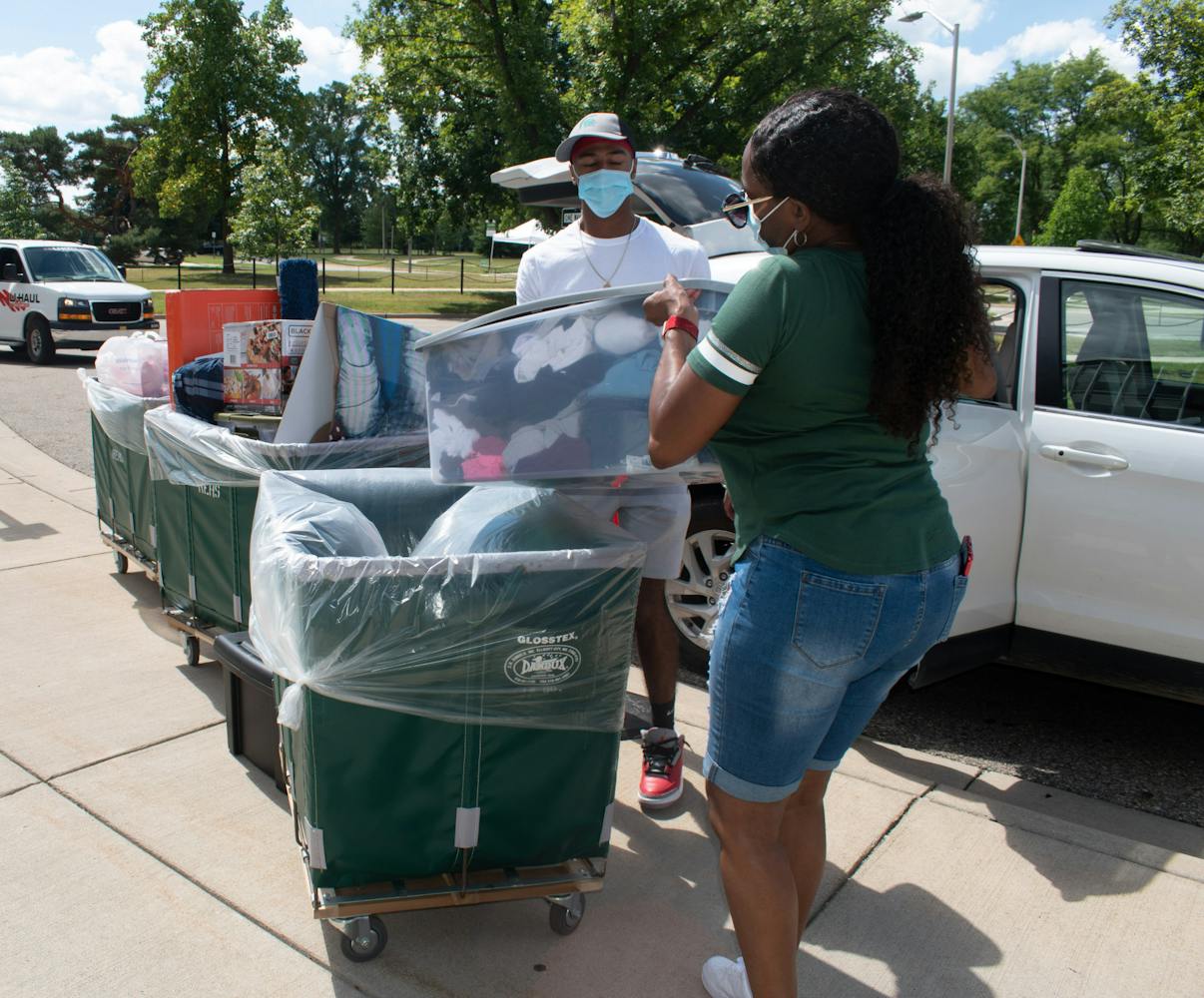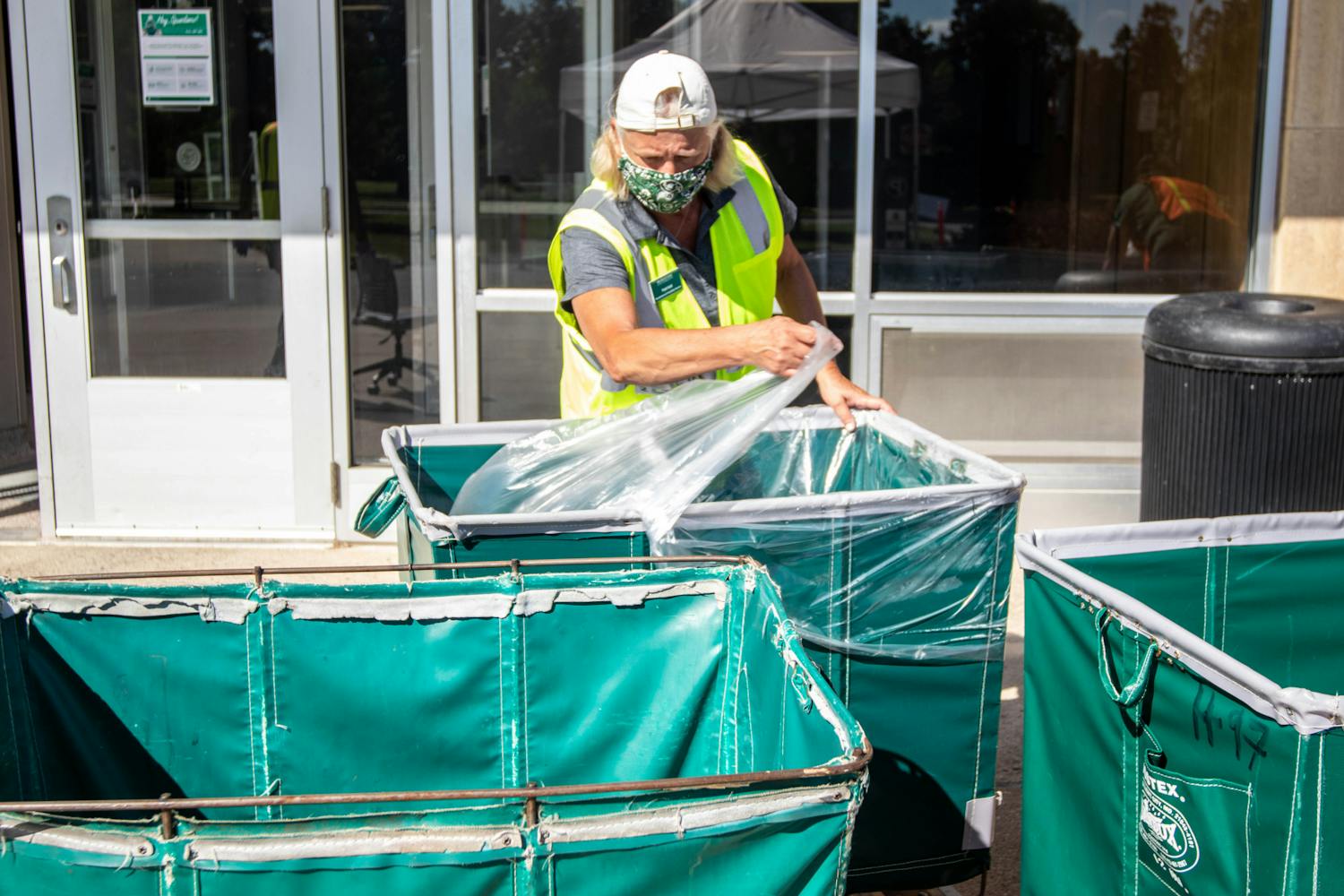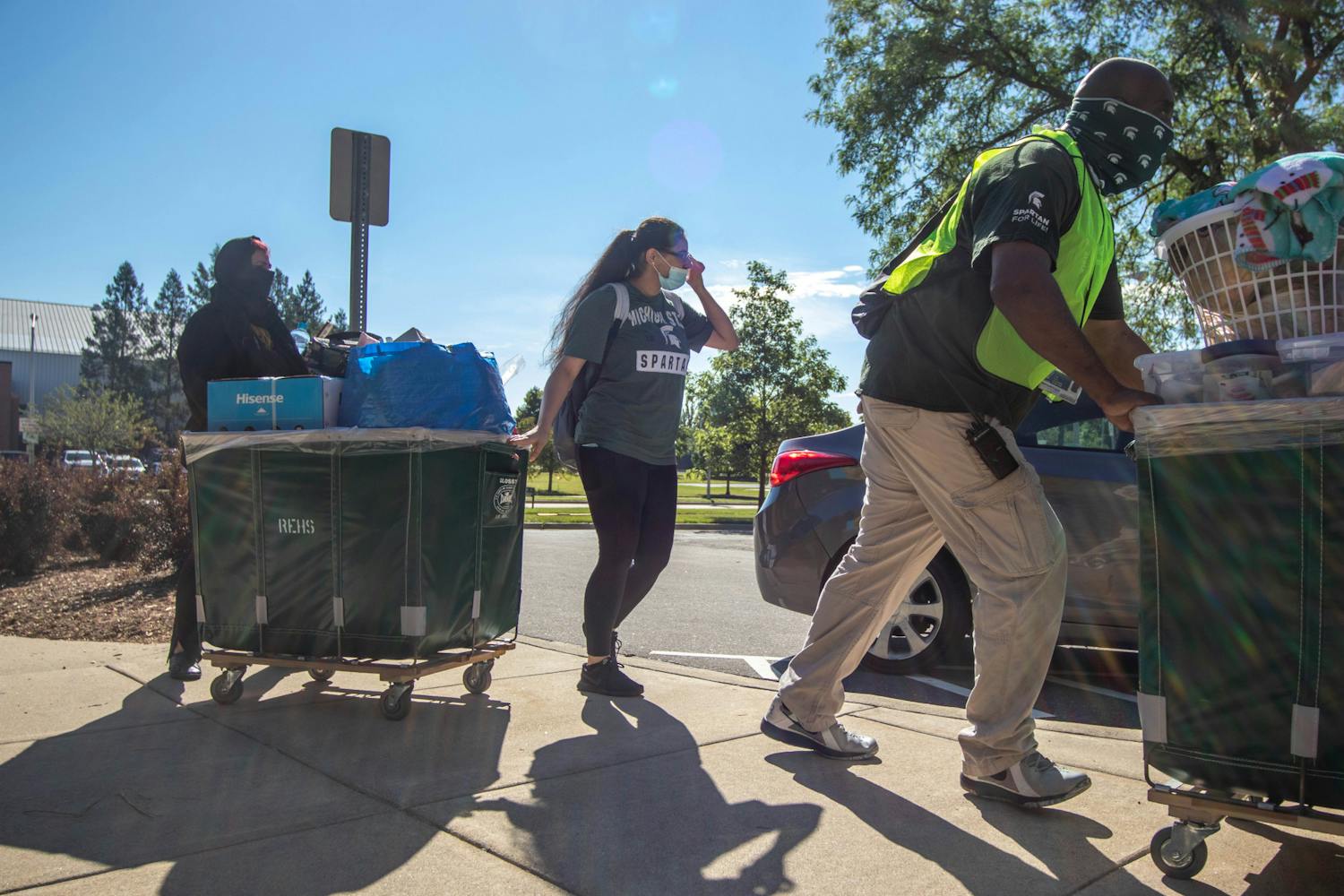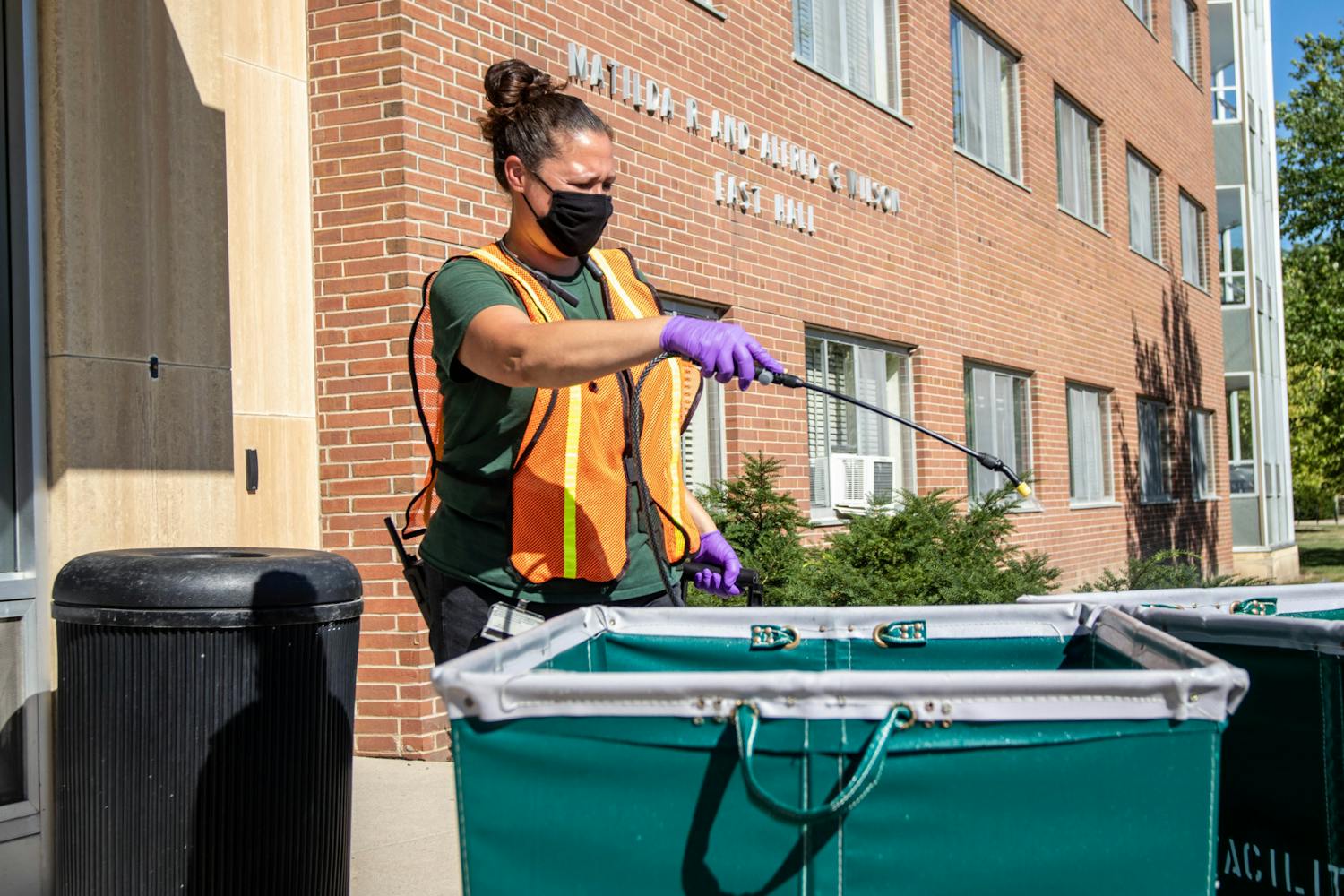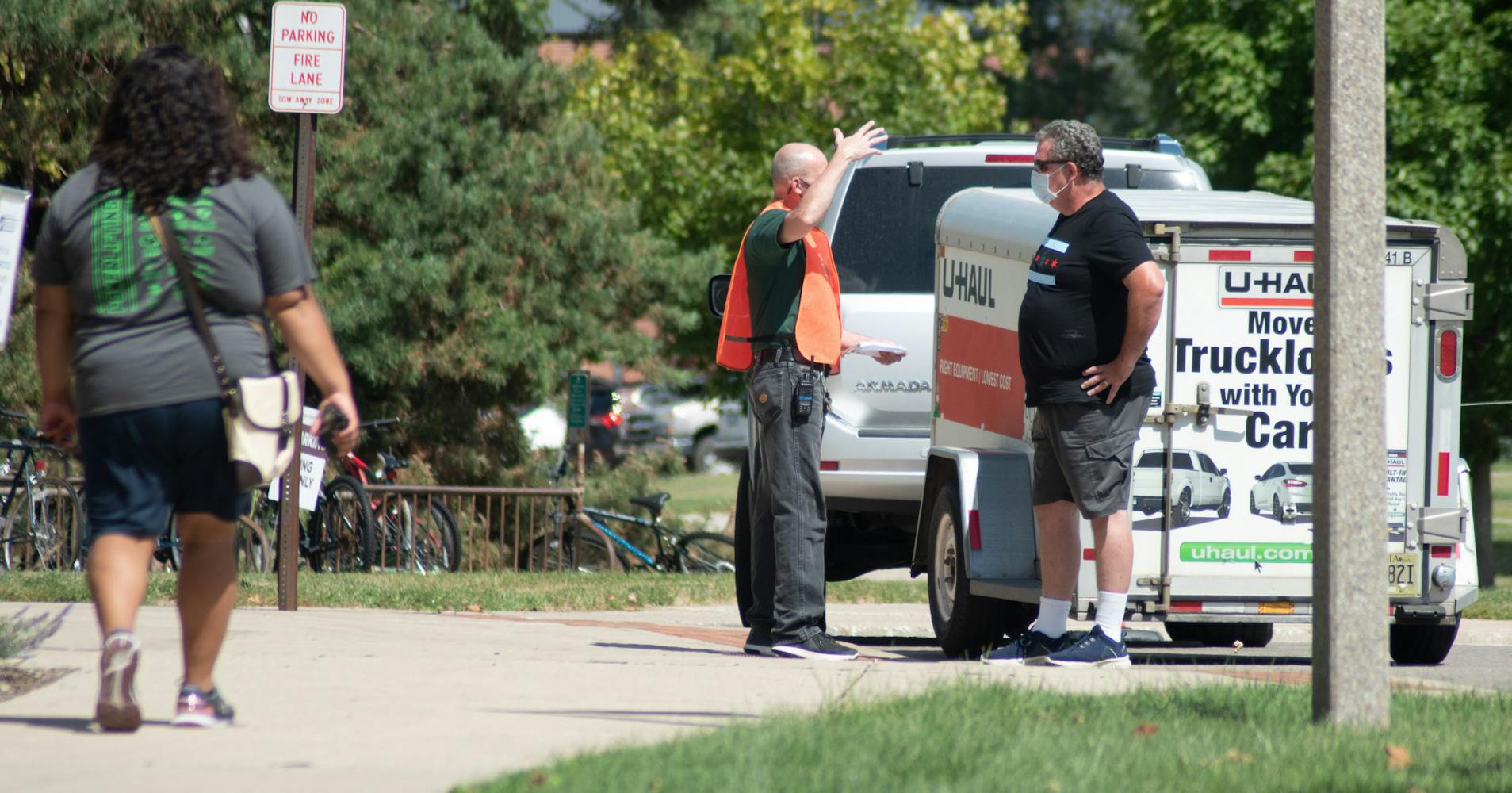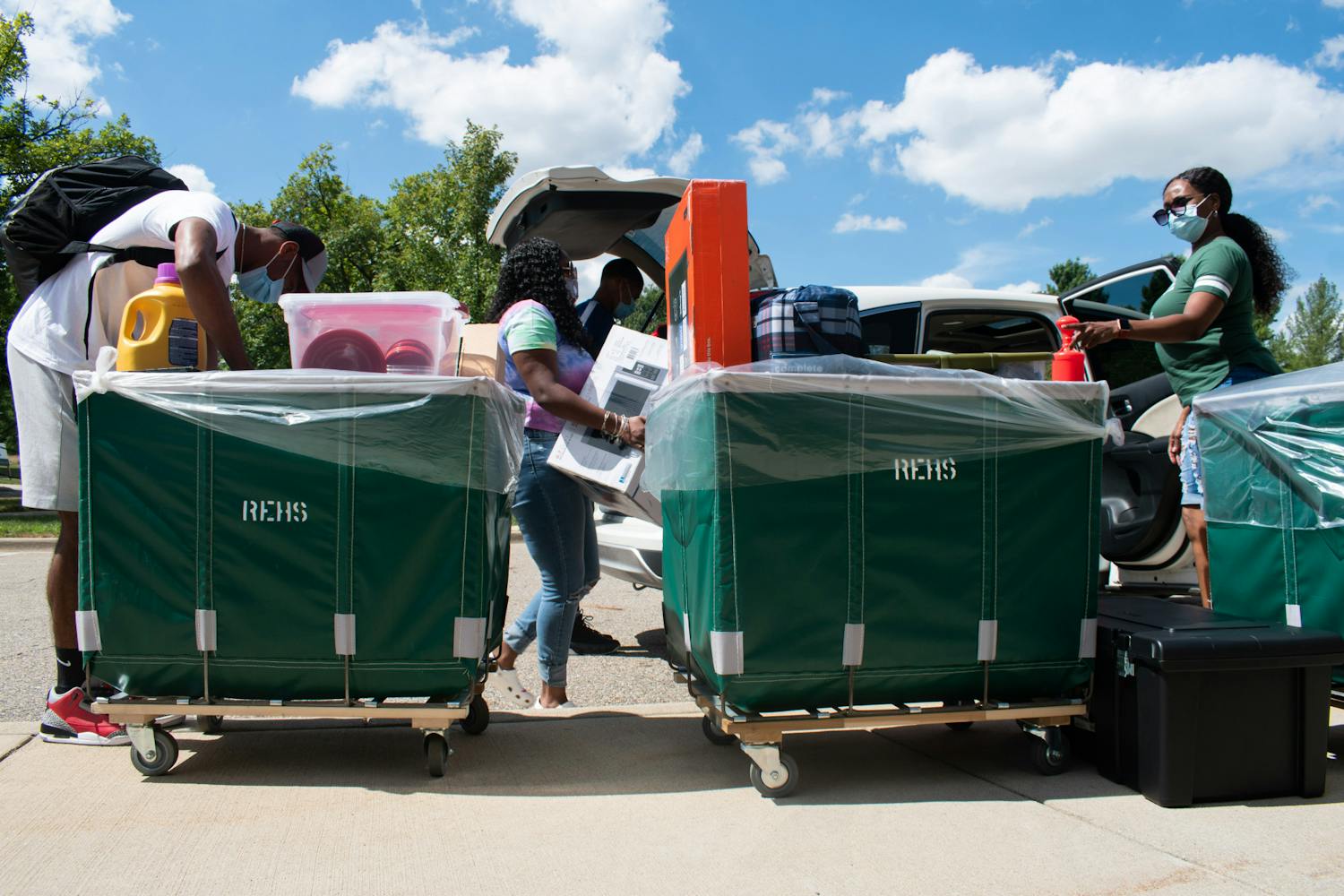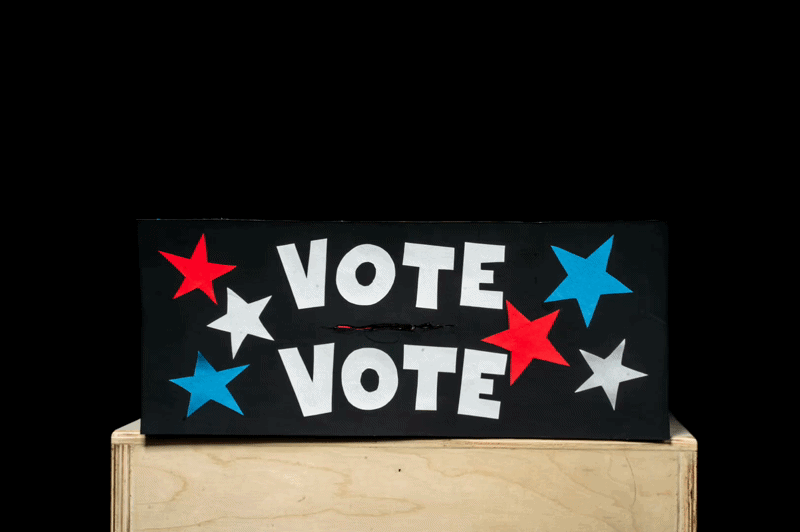As students are coming off a semester of online classes with no long breaks other than Thanksgiving, the need for mental health breaks throughout a semester is apparent.
The impact of no spring break on mental health
Human capital and society senior Julia Nasiatka is one of these students concerned about the impact this will have on her mental health.
“Honestly I’m upset about it,” Nasiatka said. “I know fall semester is hard for a lot of people because the only break we get is Thanksgiving and nothing before that, and spring semester is supposed to be where we do get that longer break. ... I know mental health has been a big struggle for a lot of us including me, so to go through another semester and not get a break is going to be a lot.”
For neuroscience and Arabic sophomore Erin Mahan, the pros outweigh the cons in regard to canceling spring break, but she knows that the decision will greatly affect students’ mental health.
“I think that, overall, canceling spring break is a better decision than the alternative of not having any restrictions on spring break, but I don’t think they took into account how negatively it was going to affect student mental health and student morale as a whole,” Mahan said.
Nursing sophomore Ashley Przybyl knows firsthand just how important a break in the spring semester can be. Now that MSU officially canceled spring break, she does not have a long break to anticipate.
“It’s upsetting,” Przybyl said in a Facebook comment. “Whether or not students used spring break to travel, spend time with their family, or just take a break from class work, it was important for our mental health. Spring break gives students the necessary mental break from school work and time to take a breather from the stress. Classes are already hard for most people and even harder during this entire time. I know a lot of my friends and I are struggling with the semester as it is and spring break was that escape we were looking forward to.”
Students try to find positives among many faults in the decision and alternative plan
MSU announced that in place of spring break, students will get three midweek days off throughout the semester.
For George McNeill, a masters student in the department of communication, this sounds like a good compromise.
“The idea of having a complete day off during the week three times during the semester sounds wonderful and I know that I’ll be able to craft my schedule around that,” McNeill said.
But, there were many more negative reactions from students who thought these three midweek days would not have the same benefits that a full spring break would. Journalism senior Connor Smithee does not think the midweek days off will be good for students.
“I’m not a huge fan of the idea,” Smithee said. “For me, it’s not necessarily that I want to go travel somewhere, it’s just a good decompression, and I don’t think an extra Tuesday or Thursday here or there is going to be the same thing.”
With the preparation for a vacation needing to start months in advance, there are some students who already made plans for spring break as it was scheduled. This now puts them in a tough situation as they try to figure out what their next steps should be.
Pre-nursing freshman Megan Catron is one of these students who now has to scramble as her spring break plans were already made.
“I already scheduled a vacation that is well over $1000… and I need to basically find out if I can get a refund on it or not or if I’m going to lose out on all that money,” Catron said.
Another concern with the alternative midweek days off is that these will not end up being days off at all. Multiple students expressed concern that professors would assign work on these days and even if they did not, students would have to use the days to catch up in their classes.
Support student media!
Please consider donating to The State News and help fund the future of journalism.
Biosystem engineering sophomore Lexi Szurna, is one of these students.
“I think that they won’t really do much because I feel like personally, I’m still going to do work on those days,” Szurna said.
Mahan expressed a similar concern.
“They’re taking time away from classes that professors already have scheduled or were counting on, and they are just going to be replaced with recorded lectures or something else like that ... that the professors expect us to do on those days off,” Mahan said.
Education freshman Maria Gordon never got to experience a normal semester as an MSU student. Gordon sees why the university made the decision and agrees whatever will help get students back on campus quickest is what she wants to be done, but she still acknowledged the mental health impact this decision could have.
“I definitely feel like with (President Samuel L. Stanley Jr.) canceling spring break it definitely really shows commitment to everybody and trying to make sure that we are able to go back next year. I personally feel like it is a good idea, but I know when spring break comes around it is going to have a toll, and I’m going to wish I had that week off,” Gordon said.
Reactions to an increase in "in-person educational experiences" and housing decisions next semester
MSU also announced that students can expect up to 400 “in-person educational experiences” in the upcoming semester. These in-person educational experiences will be focused on classes that students need to graduate on time, and cannot be taught through an online alternative.
Psychology sophomore Sarah Stewart voiced concern about these in-person experiences.
“I’m angry that they’re putting people in a place where they have to choose between graduating on time and not being safe,” Stewart said in a Facebook comment.
Political science pre-law sophomore Julianne Noye thinks that this announcement will cause housing confusion for students who might not be able to be on campus.
“They should’ve decided what classes were going to be offered in person or online because now a lot of students don’t know whether they should go back to campus or not,” Noye said in a Facebook comment.
Housing is another aspect of the spring semester that MSU announced would be changing. While 2,500 students currently live in the dorms, another 2,500 will be permitted to move into the dorms for the upcoming semester.
There was also an announcement from Eat at State that seating areas within dining halls would reopen beginning on Oct. 22nd. For vocal performance and music education freshman Jason Brown, who is currently living in the dorms, the idea of more people moving in and dining halls reopening sounds like a combination that might lead to more COVID-19 cases.
“I wouldn’t necessarily like the dining halls to be dine in. … I would say if you’re going to let more people in I would compromise by making it only takeout again,” Brown said.
Overall, there are some reactions where students tried to be understanding of the announcements.
“I understand why people would be frustrated by it, but in my heart, I see that it’s a decision being made in the interest of the greater community to keep everyone safe in a compassionate way," McNeill said. "Obviously, a decision like this is never easy."
But, an in-person semester without a large break is daunting to many students.
“I think it’s similar to how the two weeks before Thanksgiving feel during the fall semester,” Mahan said. “Every professor is trying to finish as much material as possible before you go on Thanksgiving break. That’s how the entirety of next semester is going to feel. There’s not going to be anytime to catch up if you fall behind. It’s going to be unforgiving, and I think that it will ultimately be worse than this semester.”
As to whether or not canceling spring break will slow students down from partying is another concern for students. For Brown, he does think that students will party less often.
“I think that them canceling spring break is pretty smart because when people go (on) spring break all they do is party anyway, which is what we’re trying to avoid in the grand scheme of things,” Brown said.
But, many others thought that the cancellation of spring break would not stop students who are going to party regardless.
“I really don’t think that President Stanley and the other staff that made this decision took into account how much students already don’t care,” Mahan said.
Spring break may be canceled in hopes of slowing the spread of COVID-19, but many students have lost complete faith as parties continue in East Lansing despite many efforts to control them.
“We’re talking about 19-, 20-, 21-year-olds,” Smithee said. “If you’re going to tell me that they’re going to listen to what President Stanley says, I just don’t think it’s going to work; I think people are going to find ways to party.”
Discussion
Share and discuss “Students react to spring break cancellation, spring semester changes” on social media.
